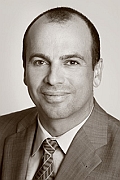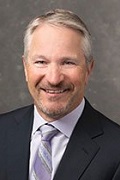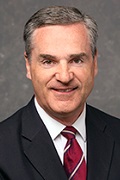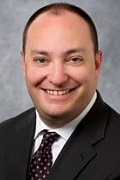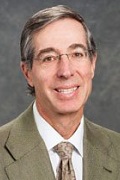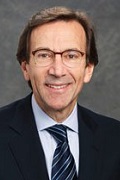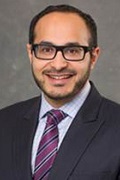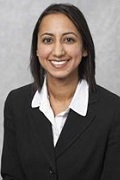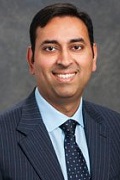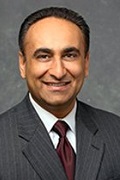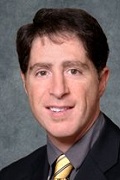#2 – Trying To Fit Square Pegs Into Round Holes
The courts have been consistent and clear that expert evidence is permissible to assist in limited circumstances. In the seminal case R. v. Mohan:1
"Admission of expert evidence
depends on the application of the following criteria:
a) relevance;
(b) necessity in assisting the trier of fact;
(c) the absence of any exclusionary rule; and,
(d) a properly qualified expert."
and in Rice v. Sockett:2
"The derivation of the term 'expert' implies that he is one who by experience has acquired special or peculiar knowledge of the subject of which he undertakes to testify, and it does not matter whether such knowledge has been acquired by study of scientific works or by practical observation. Hence, one who is an old hunter, and has thus had much experience in the use of firearms, may be as well qualified to testify as to the appearance which a gun recently fired would present as a highly-educated and skilled gunsmith."
If the relevance, necessity and expertise of the expert are not established and precisely communicated to the court during the qualification process, the range of the expert's subsequent testimony may be restricted by sustained objections from opposing counsel, leaving you with an unplanned void in the evidentiary foundation of your case.
Trouble is not far off if:
1. The right questions are asked, but to the wrong expert;
or,
2. The right expert is asked to give an opinion on the wrong
questions/issues.
Trouble can come in three principal forms:
1. Ill-conceived Marching Orders
In several cases, I have been faced with a series of cross examination questions regarding an instruction letter I received – an avoidable distraction;
On the surface, informing the expert as to the mandate, and the substance and timing of deliverables seems relatively straight forward, and in years gone by this was probably true. But in today's environment of more fulsome disclosure, the expert's file (including communications with counsel) may be available to opposing counsel at some point in the proceedings. It is important to keep this in mind during all your dealings with your expert.
Initial instructions and subsequent communications between counsel and the expert can be verbal or written and general or detailed.
A more general mandate may involve, for example, a brief discussion over the phone whereby the expert is asked to provide his/her opinion as to the "financial loss" in the matter. A detailed mandate may ask the expert to provide an opinion on specific questions posed by counsel to the expert.
Detailed questions are appropriate in some cases, particularly when there are specific/discreet issues in dispute which have a qualitative financial component. A few words of advice:
a) Do not wander into issues that are within the domain of the trier of fact (i.e. the ultimate issue);
b) Do not couch the instruction letter with loaded terminology – the instruction letter is not argument. An independent expert should ignore such positioning but that doesn't mean it won't be an area of cross examination; and,
c) Avoid unnecessary narrative in the instruction letter – this adds nothing to the effectiveness of the communication.
2. Qualifying the Expert at Trial
The qualification process is an important element in presenting expert evidence. However, how many times have you seen counsel stumble when qualifying an expert during court proceedings? Business valuators described as accountants (which is not necessarily wrong, but is not precise), accountants described as actuaries (wrong on any measure) and actuaries described as economists; or a long pause when attempting to describe what the expert's mandate involved.
It is not a great way to start an Examination in Chief, particularly if your expert has a pension for precision and starts to correct you in real time during his/her testimony.
The problem often stems from the fact that, on occasion, counsel may have only briefly considered the questions to pose to qualify the expert.
Planning the qualification process has never been more important than in today's environment with the courts' greater emphasis on the gatekeeper role evidenced in recent decided cases. This role was explained in one recent case as follows:
"When assessing the qualifications of a proposed expert, trial judges regularly consider factors such as the proposed witness's professional qualifications, her actual experience, her participation or membership in professional associations, the nature and extent of her publications, her involvement in teaching, her involvement in courses or conferences in the field and her efforts to keep current with the literature in the field and whether or not the witness has previously been qualified to testify as an expert in the area."3
And in the Inquiry into Pediatric Forensic Pathology in Ontario (2009) in which Justice Goudge wrote "The proper practice is for counsel presenting an expert witness to qualify the expert in all the areas in which the expert is to give opinion evidence. If this is done, no question as to the admissibility of their opinions arises."4
Often times opposing counsel will rise during the qualification process to announce that the tendered expert's suitability is conceded – don't forego the rest of the questions in the qualification process – use this opportunity to establish the expertise and credibility of the witness.
3. Stretching and Encroachment
Litigation cases are often complex and require several years to resolve. As a result, it is not uncommon that the issues in dispute evolve over time and this may require adjustments to the expert's mandate. It is important to evaluate the evolving nature and purpose of the required expert evidence, and assess whether the current expert:
a) is qualified to provide the new opinion;
b) has prepared opinions either in this case or in other cases that
can have an impact on his/her ability to render the (new) required
opinion in this case.
Most importantly, don't let the expert opine on issues that are the purview of the court. Don't fit square pegs into round holes.
"The objection to expert opinion evidence is often framed, incorrectly, as a prohibition against adducing evidence on the ultimate issues in a case. In the text by Sopinka, Lederman and Bryant, The Law of Evidence in Canada, (1992) at p. 540, it is noted that the closer the testimony of an expert gets to the ultimate issue the court has to decide, the more inclined the court is to reject that evidence. The writer notes [sic], however, that while the justification for this prohibition is often said to be that such an opinion would "invade the province" or "usurp the function" of the jury, the preferable rationale is that enunciated by Aylesworth J.A. in Fisher v. R., [1961] O.W.N. 94 (C.A.) at pp. 95-96. It is not because there is encroachment upon the jury's function that expert evidence has been rejected in certain cases, but rather that in those cases the expert opinion was superfluous.5
The issue is further illustrated in the following decision excerpt.
"Mr. [xxx's] report contained as well the following
mandates:
To review the bank's procedures and to provide an opinion with
respect to the standard of care of the bank's procedures...To
provide an opinion with respect to the matter of whether or not the
bank adhered to and/or fulfilled all of the terms and conditions of
their commitment letter... To provide an opinion with respect to
the facts and circumstances leading up to the bank's decision
to realize on its security....
"As I expressed in the Schneider trial (approved specifically in the Court of Appeal in Pente Investment Management Ltd. v. Schneider Corp. (1998), 42 O.R. (3d) 177 (Ont. C.A.)) such "expert evidence" is inadmissible. It offends the requirements of R. v. Mohan (1994), 114 D.L.R. (4th) 419 (S.C.C.); specifically it usurps the function of the trial judge. It is for the court to determine the standard of care and whether there has been adherence or breach. The second and third mandates, if presented as expert opinion in court testimony, would seemingly be even more offensive."6
Footnotes
1 29 C.R. (4th) 243, 71 O.A.C. 241, 166 N.R. 245, 89 C.C.C. (3d) 402, 114 D.L.R. (4th) 419, [1994] 2 S.C.R. 9, 18 O.R. (3d) 160 (note) (S.C.C.)
2 [1912] O.J. No. 49, 27 O.L.R. 410 (C.A.), Falconbridge C.J. stated at p. 413 O.L.R.
3 Tavernese v. Economical Mutual Insurance 2009 CarswellOnt 3204
4 Dulong v. Merrill Lynch Canada Inc. 2006 CarswellOnt 1843.
5 In R. v. Abbey, [1982] 2 S.C.R. 24, at p. 42
6 Toronto Dominion Bank v. E. Goldberger Holdings Ltd. 1999 CarswellOnt 4667 43 C.P.C. (4th) 275

